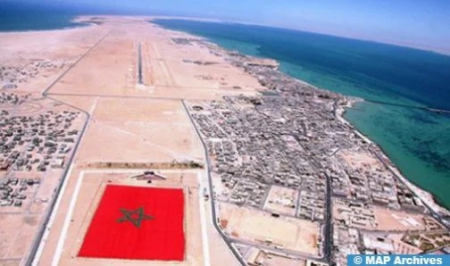Sahara: Morocco’s Autonomy Plan “Best Solution” to End Sufferings in Tindouf Camps – Petitioners –
Morocco’s Autonomy plan is the “best solution” to put an end to the ordeal people, especially children, are undergoing in the Tindouf camps, international petitioners stressed before the 4th committee of the UN General Assembly. “It is time to implement the Moroccan Autonomy Plan as it is the best solution for the future of camp children”, underlined on Wednesday Elizabeth Jordan Dail, of the Classical Conversations Foundation. She said that the Autonomy plan, which enjoys growing international support, will allow these children to reunite with their friends and relatives in Morocco’s southern provinces. In the Tindouf camps, the populations are subject to the authoritarian control of an armed separatist movement which instills hatred in children instead of solidarity and compassion, she added, stressing that these children have the right to “hope and a future”. She further pointed out that the separatists shamelessly use the sequestered populations of the Tindouf camps to elicit humanitarian aid. Amanda DiCianni of the NGO “Rescue and Relief International”, in turn, spoke out against the recruitment of children in the Tindouf camps by the armed group. “For years, the international community raised their voices in concern as the polisario trained the children in the Tindouf camps to actively engage in war games and, subsequently, in actual conflicts”, she recalled. She noted that the situation in the camps exposes young people to danger and frustration as they are deprived of their basic rights, warning of a “dangerous” situation that threatens stability in the region. The petitioner underlined that Morocco’s Autonomy plan is the “best possible solution” to put an end to this situation. In the same vein, Giulia Pace, member of the NGO “IL CENACOLO”, denounced the “oppression” imposed on the populations by an armed group which manages the camps manu militari in total breach of international law and Geneva Conventions, with the complicity and support of the authorities of the host country, Algeria. She added that many United Nations mechanisms and international human rights organizations have and still express their concern over this long-standing suffering of the populations in the camps in South-West Algeria.

